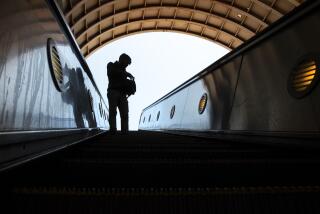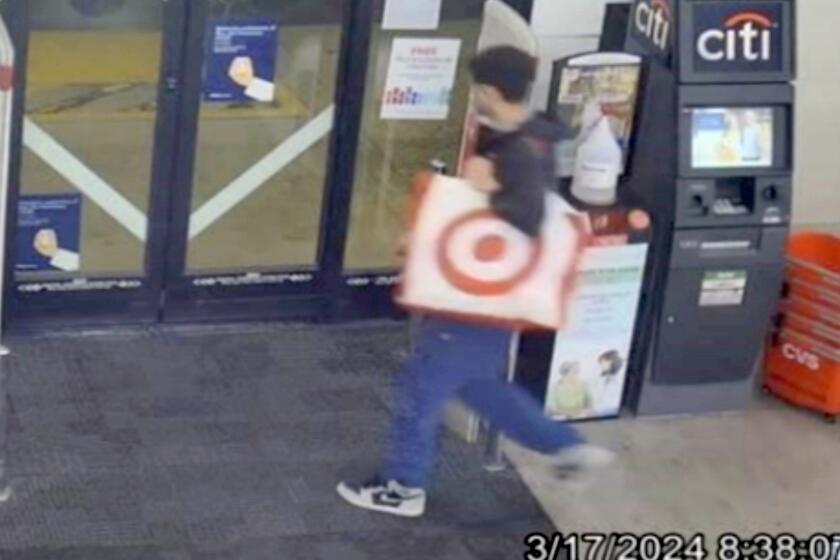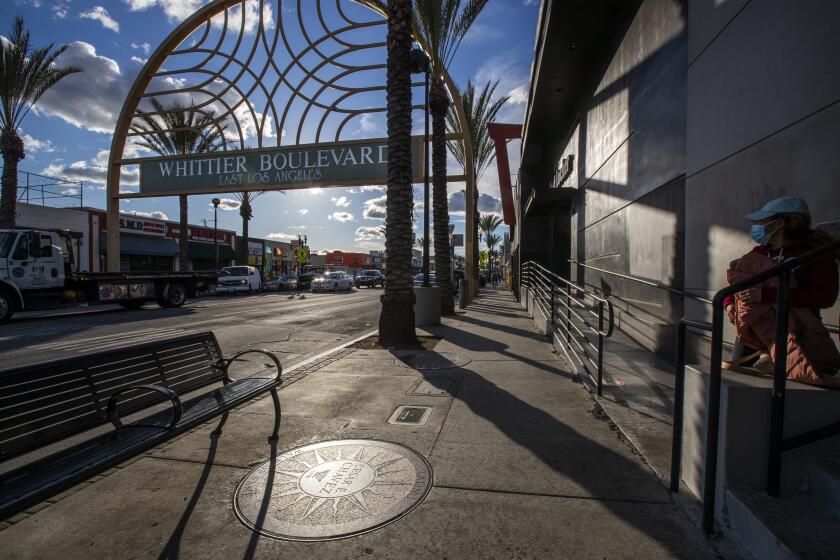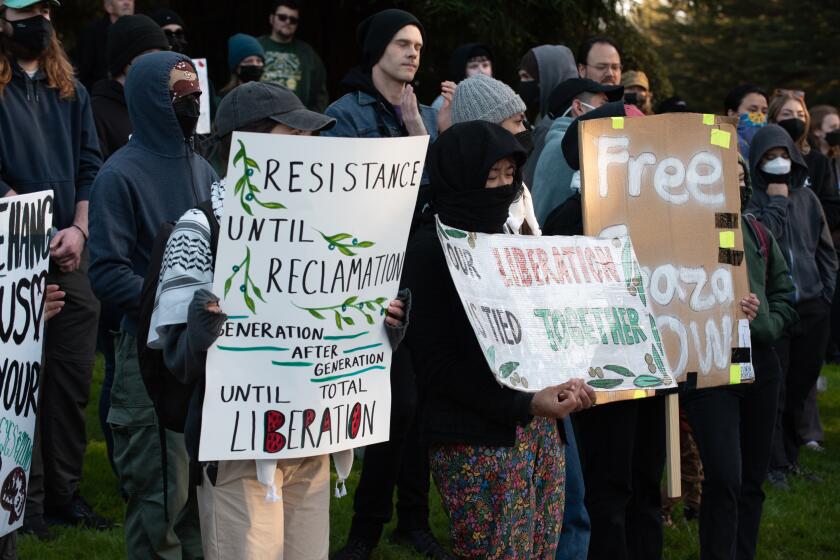L.A. transit activists rally for a federal probe
Judi Redman has taken the bus to job interviews for about a year. The South Los Angeles resident said things sometimes get awkward when interviewers ask if she has reliable transportation.
“I lie and say yes, but the bus is not reliable,” said the 51-year-old. A member of the Bus Riders Union, Redman said she can’t afford a car.
Redman joined about 250 other transit activists in Parish Hall at Immanuel Presbyterian Church in Koreatown to testify Saturday about their own experiences with public transportation.
The activists called for a Federal Transit Administration investigation that reaches far beyond a current compliance review into policies and practices at the Metropolitan Transportation Authority.
The union and several other activist groups at what was billed as a “transit justice town hall,” accused the county transportation agency of hurting poor riders by aggressively pursuing new rail projects while slashing bus service. The groups say the cuts unfairly hurt low-income, nonwhite residents and insist that bus service needs to be expanded.
Redman described a recent experience, waiting for a transfer bus on a sun-baked curb for 45 minutes. She was dressed in a black business suit, Redman said, and she spent the time feeling miserable and praying for her bus to arrive and shuttle her toward Santa Monica.
“I wanted to cry. I was hot and sweaty,” Redman said. “I was late for the interview.”
The most recent cuts to Metro’s bus service were made in June when a few lines were eliminated and service was scaled back on several others. Those cuts were made about five years after a federal judge lifted a decade-long consent decree that gave a court-appointed special master oversight of how Metro managed its bus service. Metro’s ridership, which has stagnated in recent years, rose while the agency was under the decree, as bus service increased and fares were reduced.
But Metro officials — citing “astonishingly low” ridership numbers on some lines — said that the cuts were designed to reduce redundancy in the system and increase efficiency and that the decree had forced them to offer an artificially inflated level of service that was unaffordable.
Metro Chief Executive Art Leahy said at the time that the service cuts were “not a proposal to go back to 1990” and that the agency is still able to provide adequate service. Officials said there are alternatives within a quarter-mile of each bus line that was eliminated or scaled back and that Metro also approved the purchase of hundreds of new buses and has plans to enhance other lines.
In March, Leahy said the cuts were necessary regardless of the agency’s rail program, which has been largely shielded from budget cuts because nearly all of the projects have dedicated funding from Measure R, the half-cent sales tax for transportation projects that voters passed in 2008.
Metro’s budget for the current fiscal year is more than $4 billion. The spending plan would decrease expenditures on buses by about $40 million compared with the previous year and increase rail spending by more than $460 million.
Saturday’s event at the church began with reports from a group of panelists that included attorney Connie Rice, environmental leader Robert Bullard and Barbara Lott-Holland of the Bus Riders Union, among others.
“When a bus is cut, that’s serious business,” Lott-Holland told the crowd.
After panel members spoke, about 80 people who signed up to testify began recounting experiences on Metro, one by one telling tales of overcrowded buses, buses that are late or sometimes leave riders at the curb and how Metro’s fares had become too costly for some families.
A roughly 10-foot-by-10-foot map of Metro’s bus and rail lines hung on one of the room’s side walls, and riders pasted notes on specific areas where they had experienced problems or had concerns.
One person affixed a note to a spot on Florence Avenue near Hyde Park and wrote that buses used for food shopping and doctor visits were often late. Another person left a note at a spot on Wilshire Boulevard near UCLA and wrote that the 720 line was overcrowded.
Jang Woo Karl Nam, a 40-year-old organizer with the Koreatown Immigrant Workers Alliance, said Saturday that many residents in his group are dependent on mass transit and have been increasingly complaining that there are not enough resources and services for bus riders.
“We’re not against rail,” Nam said. “We just demand that they reorganize their priorities.”
More to Read
Start your day right
Sign up for Essential California for news, features and recommendations from the L.A. Times and beyond in your inbox six days a week.
You may occasionally receive promotional content from the Los Angeles Times.






